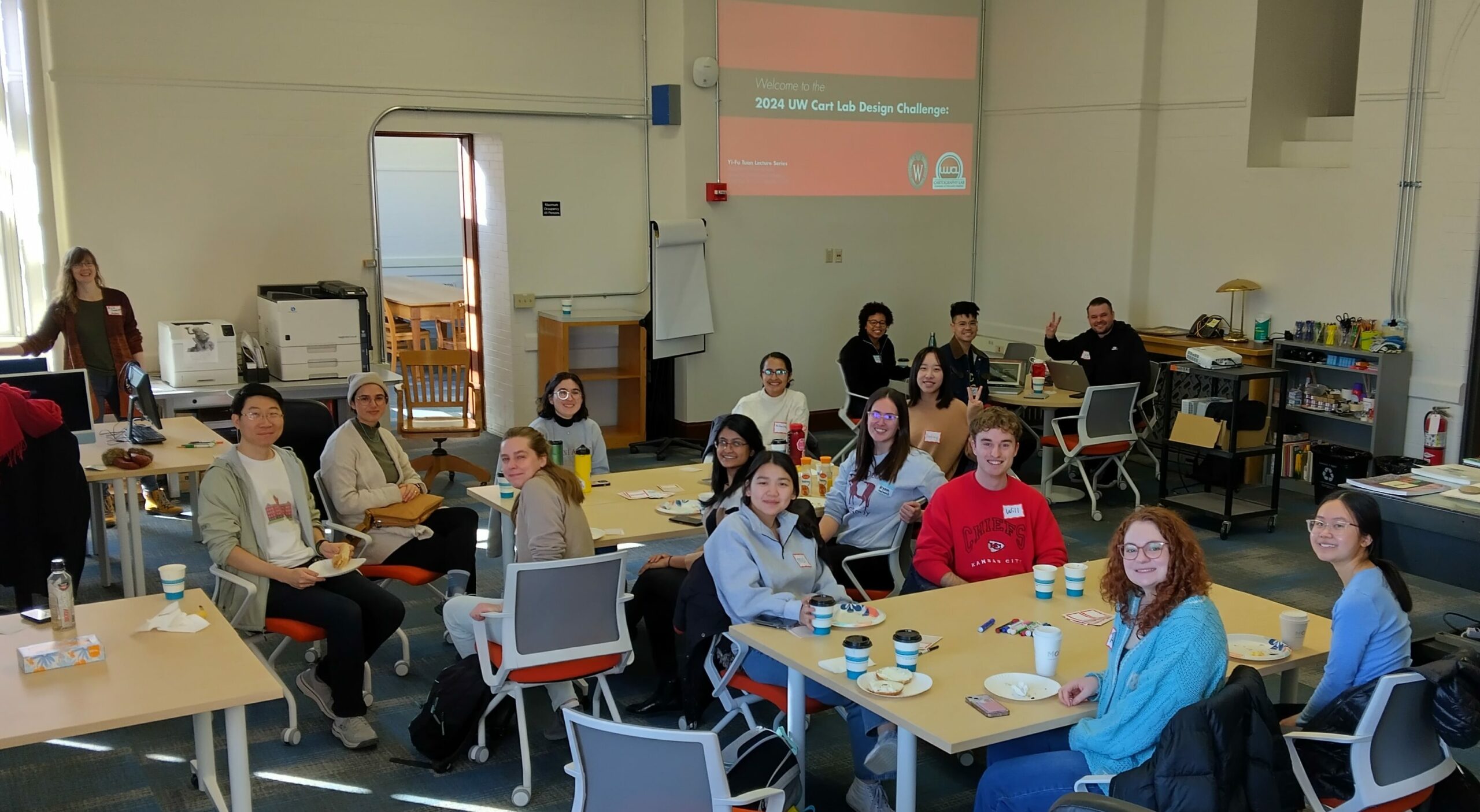
The 10th Anniversary of the UW Cartography Lab’s annual Design Challenge kicked off with a Yi-Fu Tuan lecture on February 16, 2024, with Faculty Director Rob Roth summarizing and celebrating nine years of Design Challenge events, PhD student Kela Caldwell introducing this year’s topic, and Creative Director Alicia Cowart explaining the inspiration behind a collaborative atlas-in-a-day. The lecture was followed by a departmental reception to celebrate the Cart Lab’s new space in the renovated 250 Science Hall.
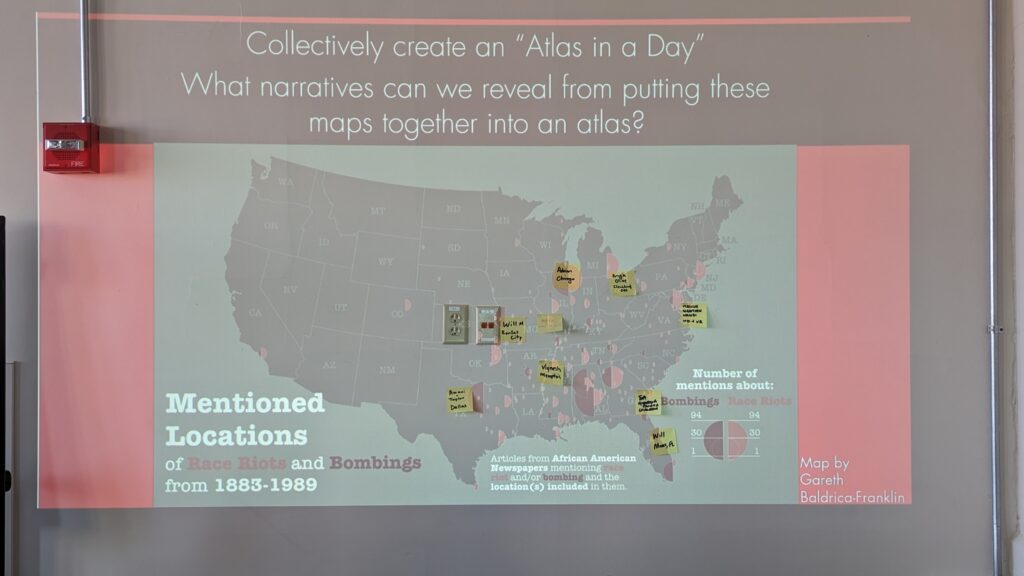
The Design Challenge is a day-long mapping event that brings together geography and cartography students around a curated mapping theme, with the goal of exploring new mapping processes and opening new transdisciplinary conversations. Over the last 10 years, participants and partners for this event have delved into a variety themes, including Visualizing the Evolution of the Great Plains, Transforming Justice in Milwaukee, Feminist Cartographies and Recidivism, and Mapping the Transnational Hazardous Waste Trade, among other topics.
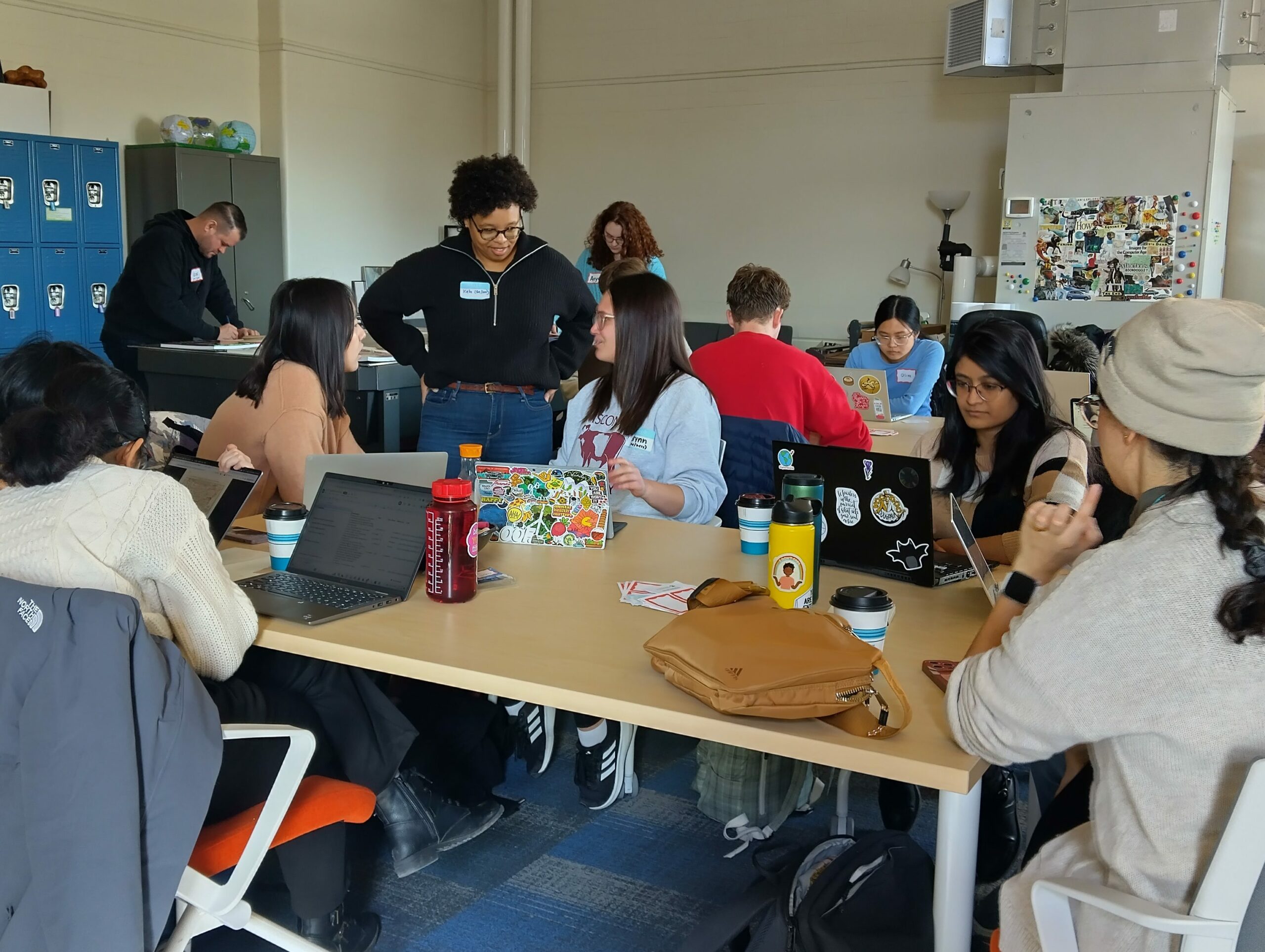
For this year’s Design Challenge, which took place on Saturday, February 17, the UW Cart Lab partnered with PhD student Kela Caldwell on her dissertation project to decipher and historicize the term race riot. Participants were asked to explore archival records of US “race riot” incidents between 1889 and 1945, and consider counter-cartographies and counter-narratives from different perspectives. Twenty-one students and staff participated, along with the event organizers: PhD students Gareth Baldrica-Franklin, Kela Caldwell, Alicia Iverson, Cart Lab Creative Director Alicia Cowart, Associate Faculty Director Bill Limpisathian, and Faculty Director Rob Roth.
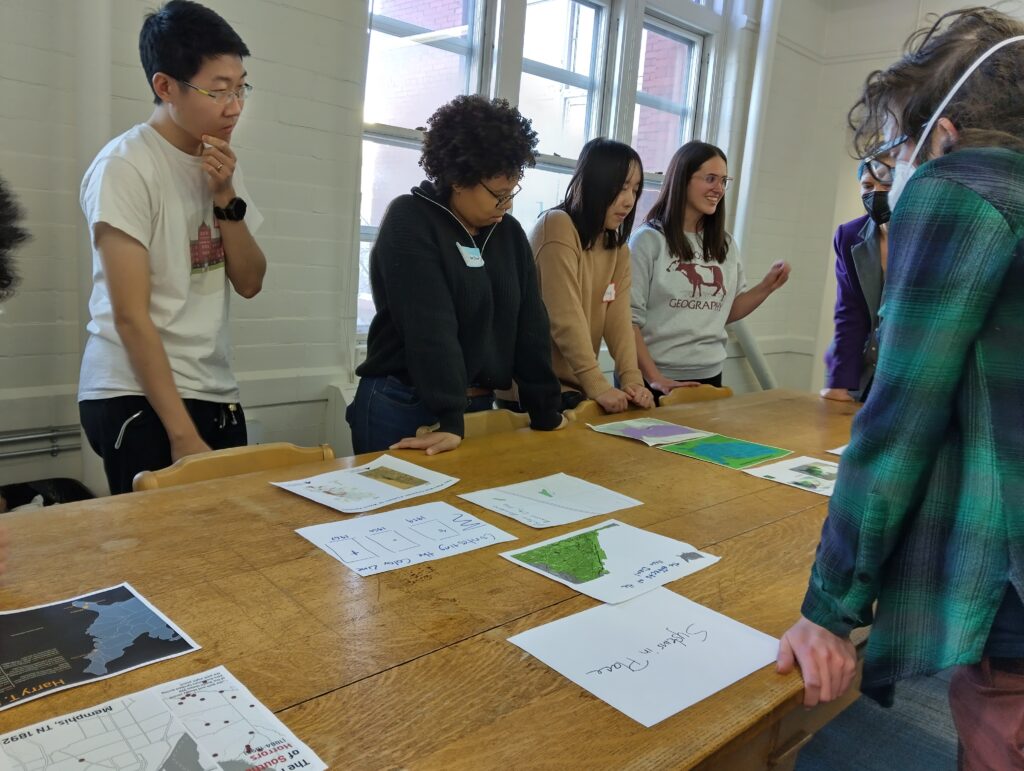
The day’s goal was to create a collaborative atlas of maps that, according to Kela Caldwell, “gives participants the chance to explore mapping techniques, consider critical storytelling approaches by putting maps in relation to other maps, in addition to discovering hidden data and statistics through archival research materials to promote public engagement and awareness.” Organizers compiled archival data ahead of the event and engaged participants in an atlas compiling activity inspired by Guerrilla Cartography’s process of crowdsourced atlas production. By the end of the day, participants produced a mini-atlas with thematic chapters on “Headlining Violence,” “Systems in Place,” and “Narratives,” and were able to go home with a print of the atlas they helped create in a single day. The atlas comprises 12 maps total, including “Just Another Day in America” by graduate students Yanbing Chen and Brynn Patrello, “The Effects of the New Deal: Black American Housing and Lifestyles in Cleveland, OH” by undergraduate students Anya Shaw and Olivia Chan, and “The Making of Southern Horrors” by PhD student Vignesh Ramachandran.
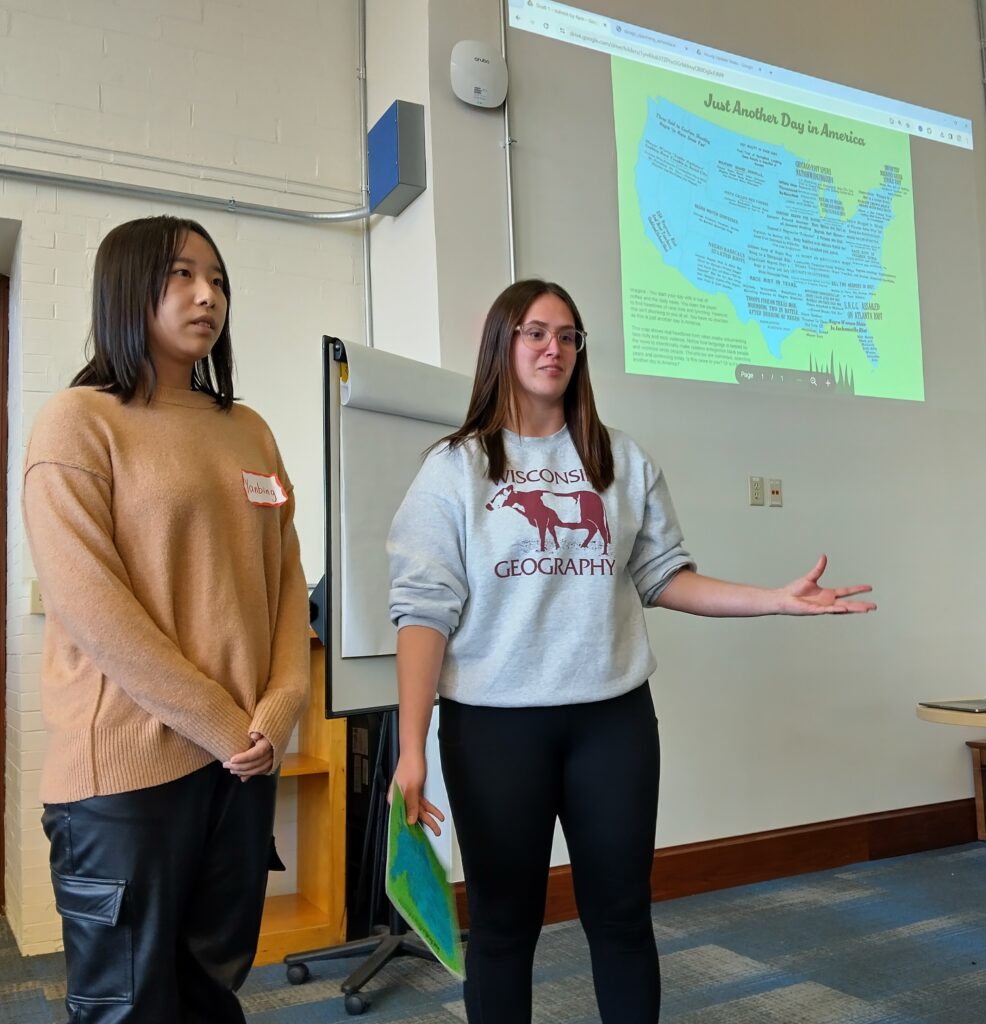
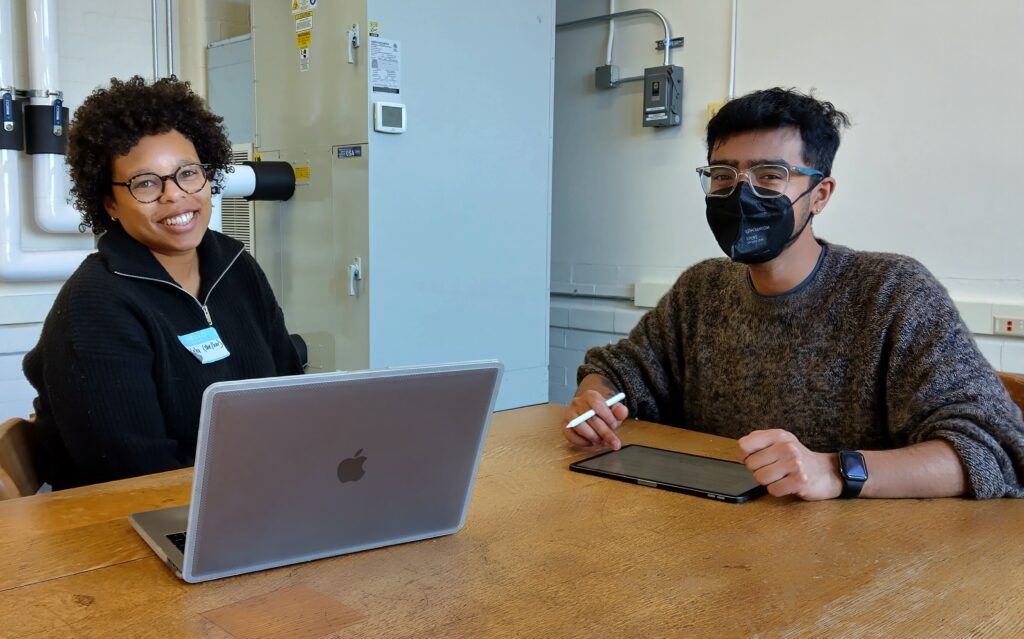
The Design Challenge fills multiple department objectives. First and foremost, this annual event enables students to test their skills and expand their design portfolios, which are important for obtaining gainful employment in cartography and the geospatial industry. The Design Challenge also creates an opportunity for new transdisciplinary conversations across subdisciplines and generates new insights and research questions. Within cartography, the Design Challenge encourages experimentation with alternative creative design approaches, enabling participants to step back from delivering specific products, and instead focus on being more intentional throughout the process. Finally, the Design Challenge often emphasizes community-engaged scholarship and design practices, empowering community partners with maps and spatial arguments around inequities and defined needs.



